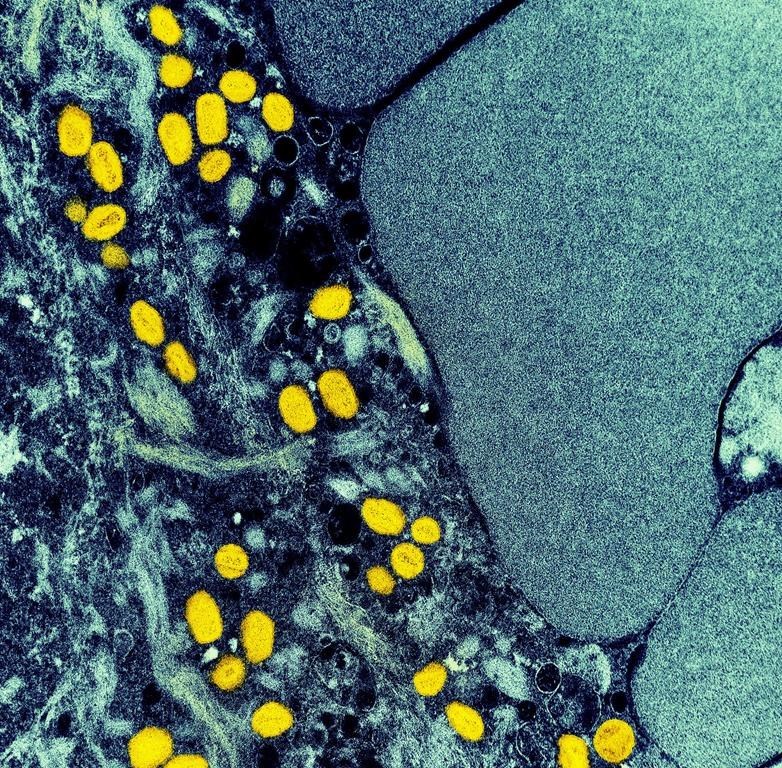TORONTO — Some advocates say Ontario's expanded eligibility for the monkeypox vaccine should include people experiencing homelessness.
Ontario released new guidelines Wednesday that include a broader segment of the LGBTQ population as well as sex workers.
The new guidelines from the Ministry of Health allow people who are two-spirit, non-binary, transgender and who belong to the LGBTQ community, and anyone with partners who identify as such, to receive a single dose of the pre-exposure monkeypox vaccine if they meet certain criteria.
The criteria includes those who have been diagnosed with a sexually transmitted infection, have recently had or are planning to have two or more sexual partners and those who have had anonymous sex recently or are planning to.
It also includes those who have attended events and venues for sex, such as bath houses and sex clubs, or who work or volunteer in these settings, as well as those who are sexual contacts of sex workers.
Previously, the priority group for the vaccine was gay, bisexual and other men who have sex with men who met certain criteria.
Abe Oudshoorn, a housing advocate and lead researcher with the Ontario Alliance to End Homelessness based in London, Ont., said it’s “vital” that people experiencing homelessness be included in the expanded vaccine guidelines.
“They are often already struggling with poor health conditions and anything we can do to protect them from any condition is vital,” said Oudshoorn.
“What we’ve learned from … the recent COVID-19 pandemic, is that people experiencing homelessness are particularly vulnerable around their health, because of both pre-existing conditions as well as the environment in which they live (often congregate living environments)," he said.
“And so we really wanna see homelessness as a priority population for this preventative approach,” said Oudshoorn.
Earlier this month, the City of Toronto confirmed a case of monkeypox in a person who had visited a shelter, prompting concerns from community workers about further infections in the shelter system and calls to prioritize individuals experiencing homelessness for vaccination.
Dr. Aaron Orkin, director of population health for Inner City Health Associates Toronto and emergency physician at St. Joseph’s Health Centre, said that while he felt the focus of the updated monkeypox guidelines was appropriate, they could have also underscored how the province will vaccinate those who are experiencing homelessness.
“People experiencing homelessness face special challenges in avoiding exposure to monkeypox, they face special risks, given the disproportionate overlap between the LGBTQ community and the community of sex workers as well as homelessness,” said Orkin.
“And then when people facing homelessness contract monkeypox, they face really special challenges in managing it, and it affects their housing security, it affects where they live, it affects their access to income and it’s really much more challenging for someone who’s homeless than somebody who’s independently housed.”
The updated guidelines also recommend two doses of the pre-exposure vaccine for people who are moderately to severely immunocompromised and those who work in certain research laboratories.
Those who have already been exposed to the monkeypox virus can also receive the vaccine, but only up to 14 days from the date of last exposure, and ideally within four days.
The guidelines say those who self-identify as a high-risk contact of a confirmed or probable monkeypox case should first consult their local public health unit to see if a post-exposure vaccine is recommended.
Patricia Mueller, CEO of Homes First, a company that oversees a series of shelters in Toronto, said she's been paying close attention to the guidelines out of concern for those who use shelters, and thought the latest changes were "excellent."
"I think the monkeypox strategy makes sense at this point in time," she said.
Mueller said they have had three monkeypox cases out of 1,200 clients at their shelters.
She said some of her staff members have concerns, however, about whether more doses of the vaccine will be available to meet their needs.
"A lot of staff that are of a certain age ... that had the smallpox vaccination, they're all saying things like, 'Is mine still valid?'" Mueller said. "They have questions like, 'Did it wear off?' I haven't had a definitive answer like, 'Don't worry.'"
Those questions have also been raised by some of her clients who are older and received smallpox vaccines in the 1960s and '70s, she said.
Monkeypox spreads when people have close, physical contact with an infected person's lesions, their clothing or bedsheets, and symptoms can include rash, swollen lymph nodes and fever.
Public Health Ontario has said that most cases are among men who report intimate contact with men, but it said anyone can get monkeypox.
The agency said there were 582 confirmed cases of monkeypox in the province as of Monday, up from 529 last Wednesday.
Its latest report, published Wednesday, said 437 of the confirmed cases, or about 75 per cent, are in Toronto, and all but three cases are reported among males. The average age of all confirmed cases in the province is about 36, and confirmed cases range in age from under 20 to 74.
Public health says 18 people have been hospitalized with the illness in the province and two people have been in intensive care.
There are also seven probable cases in Ontario.
This report by The Canadian Press was first published Aug.25, 2022.
Jessica Smith, The Canadian Press

